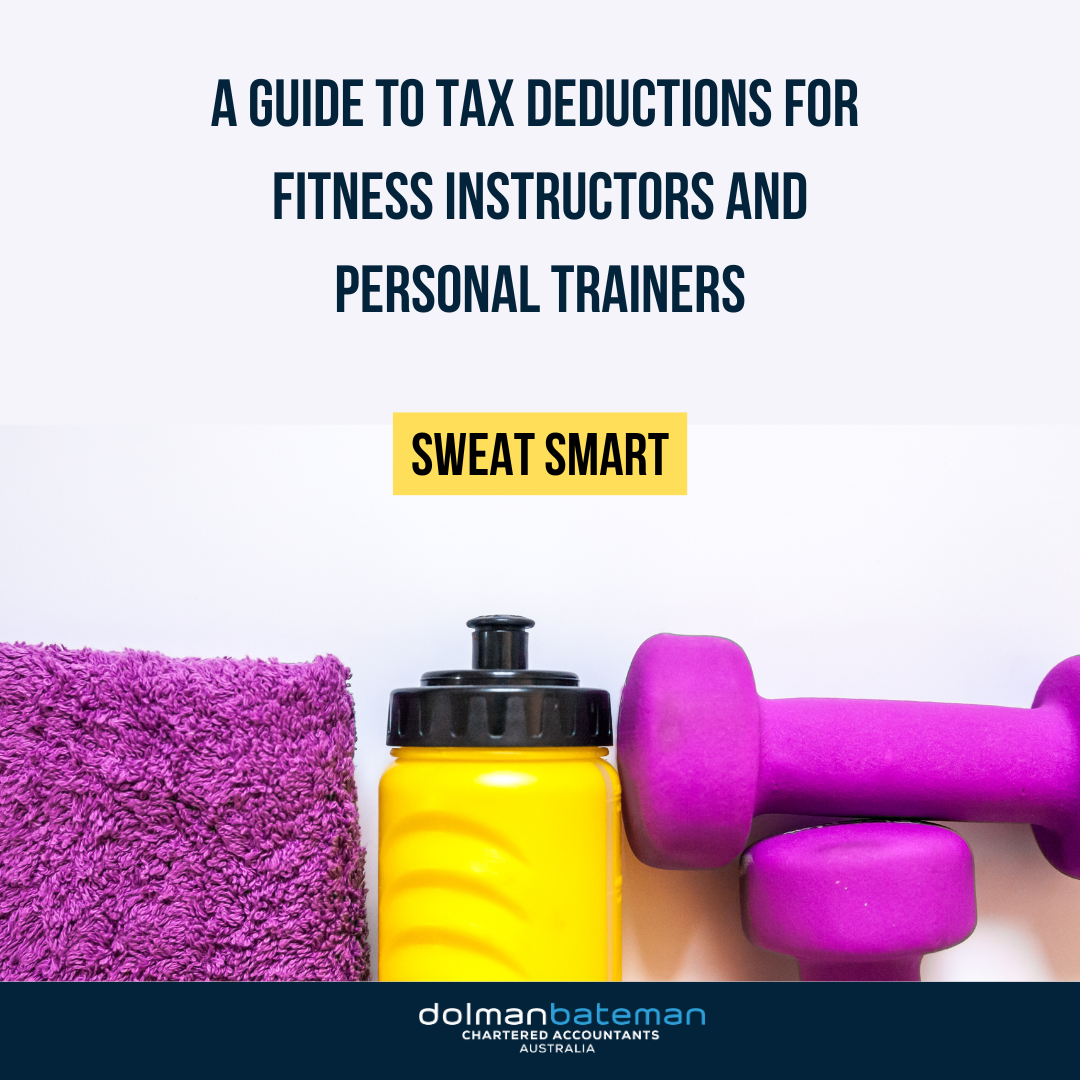Sweat Smart: A Guide to Tax Deductions for Fitness Instructors and Personal Trainers
- Arnold Shields
- Oct 13, 2023
- 3 min read
Updated: May 14, 2025

Australia has a strong culture of sport, health, and fitness, and the professionals behind this movement deserve every financial advantage available. If you’re a personal trainer, gym owner, coach, or fitness instructor, understanding your tax entitlements is critical to keeping your business financially fit.
What You Can Claim as Tax Deductions
1. Fitness Equipment and Gear
Items such as resistance bands, yoga mats, kettlebells, skipping ropes, and gym attire worn for professional purposes may be deductible. Ensure the purchases are strictly business-related and not used personally.
2. Gym Memberships (For Work Purposes)
If your role requires access to a gym for client training or maintaining your professional capabilities, the membership may be deductible. Personal use doesn’t qualify.
3. Ongoing Education and Courses
Courses that help improve or maintain your fitness qualifications, such as first aid refreshers, Pilates certification, or strength training courses, are generally tax-deductible.
4. Professional Indemnity Insurance
Most trainers carry liability insurance, and those premiums are fully tax-deductible under ATO guidelines.
5. Marketing and Advertising
Promotion expenses like digital ads, printed flyers, website hosting, and business cards are all claimable.
6. Travel and Vehicle Expenses
Driving between client sessions, gyms, or to purchase supplies? Keep detailed logs to claim fuel, registration, maintenance, and depreciation. Consider using the cents-per-kilometre method or the logbook method for maximum accuracy.
Home Office Deduction
If you conduct parts of your business from home, admin, client programming, or virtual training, claim a proportion of your home-related costs. This may include rent, utilities, internet, and equipment depreciation. The space must be dedicated and not used for personal purposes.
Superannuation Contributions
As a self-employed trainer or contractor, super isn’t optional, it’s essential. Voluntary contributions to your super fund are tax-deductible and provide long-term financial stability.
Depreciation of Assets
Major business-related purchases over $300, such as treadmills, benches, or even laptops used for client programming, can be depreciated over their effective life under ATO guidelines.
Uniform and Clothing Expenses
Clothing bearing your logo or compulsory uniforms required by your employer are deductible. General activewear, even if worn to train clients, is not deductible unless it meets the ATO's strict uniform criteria.
Professional Memberships and Subscriptions
Annual dues to professional bodies like AUSactive, Fitness Australia, or relevant journal subscriptions may be deducted.
Final Thoughts
Staying on top of your tax obligations is just as important as staying in shape. By understanding what’s deductible, you can ensure you’re not paying more tax than you need to. Keep detailed records, save receipts, and when in doubt, consult a professional.
At Dolman Bateman, we specialise in supporting fitness professionals across Australia. Whether you're just starting out or running a full-service gym, we’re here to help you maximise your returns and reduce tax-time stress.
Let us do the heavy lifting for your finances, so you can focus on your clients.
Disclaimer:
The information provided in this article is general in nature and does not constitute personal financial, legal or tax advice. While every effort has been made to ensure the accuracy of this content at the time of publication, tax laws and regulations may change, and individual circumstances vary. Dolman Bateman accepts no responsibility or liability for any loss or damage incurred as a result of acting on or relying upon any of the information contained herein. You should seek professional advice tailored to your specific situation before making any financial or tax decision.
